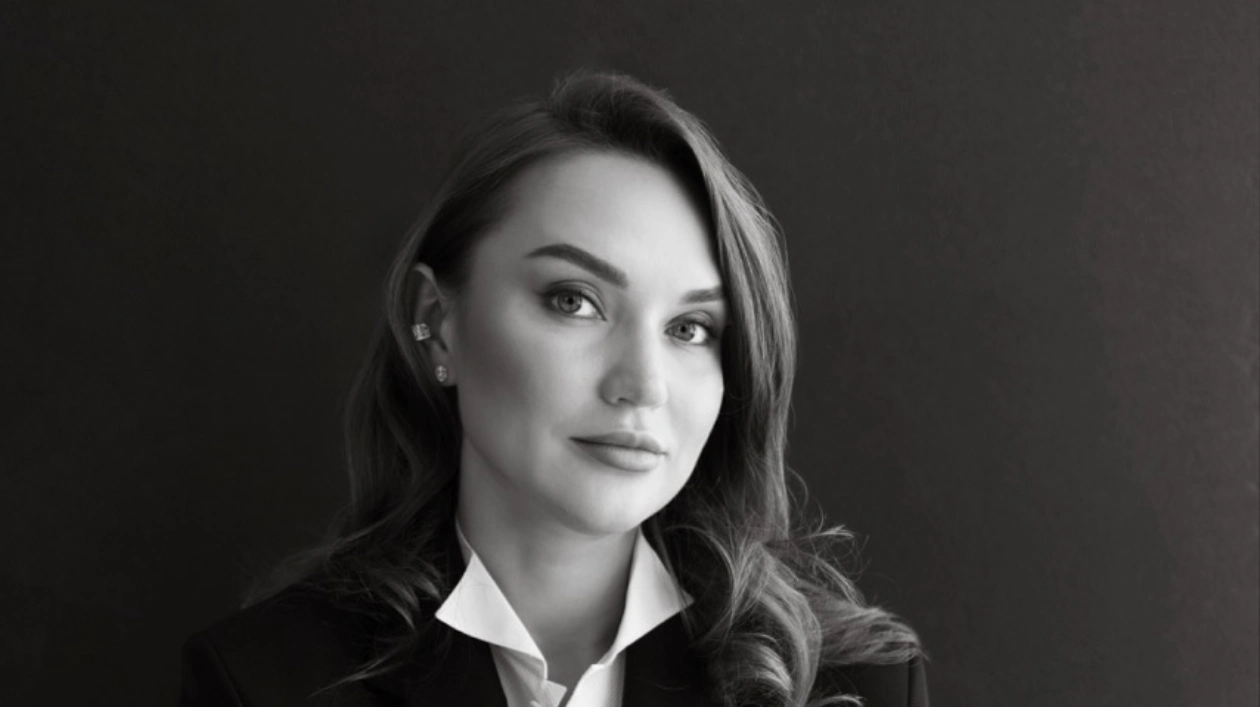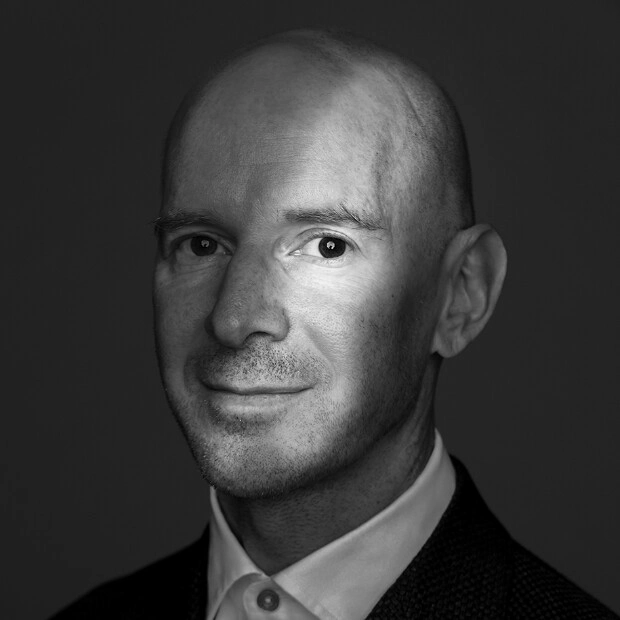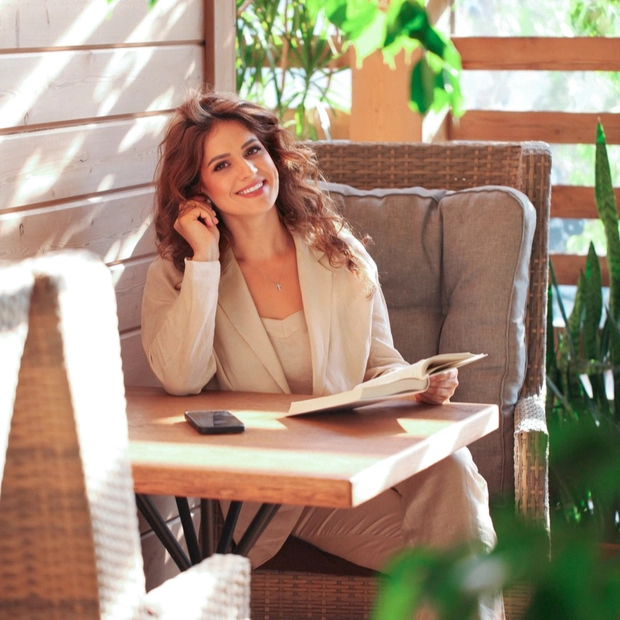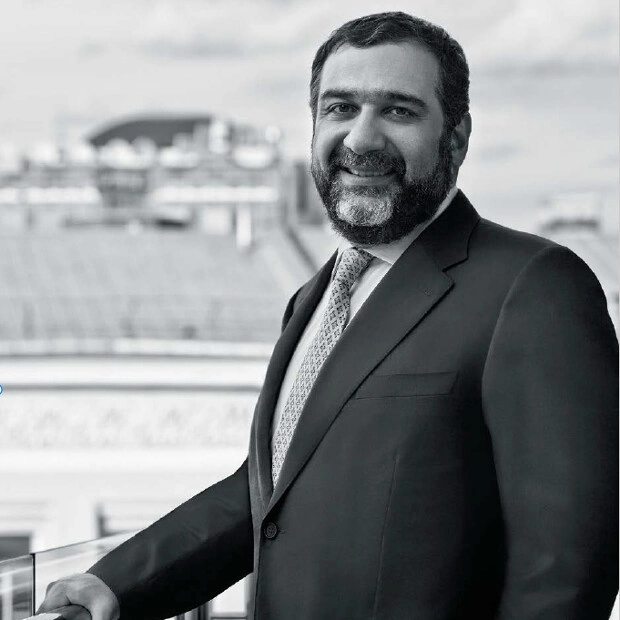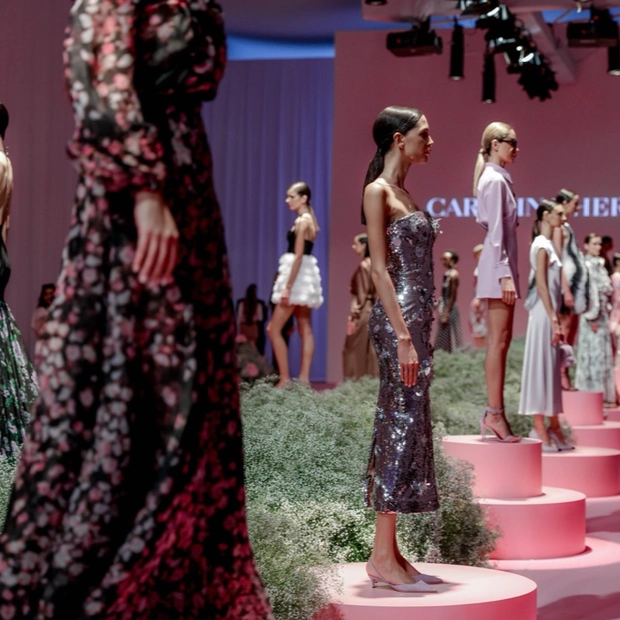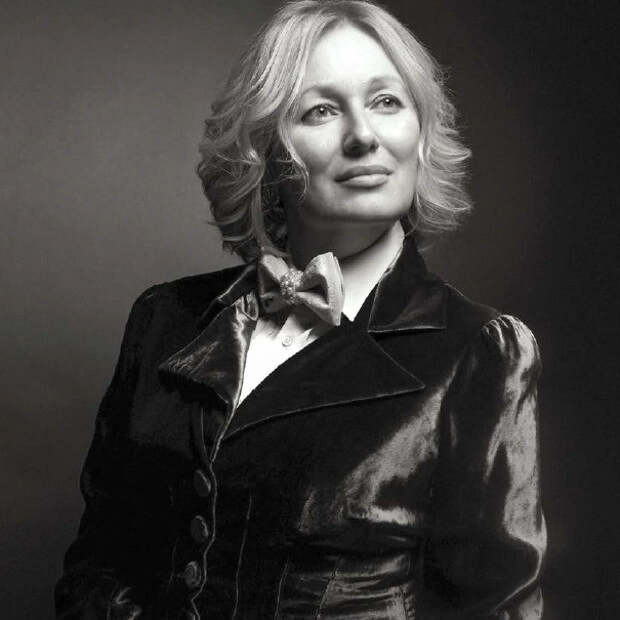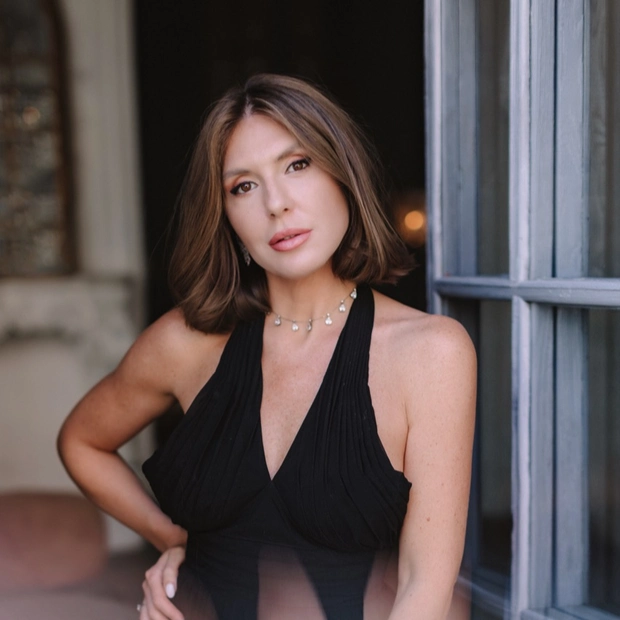Wings Would Find the Sky
An entrepreneur's journey in a foreign land is not just a change of geographical coordinates but a deep dive into a new reality. It requires not only professional skills but also a special mental flexibility and ability to adapt to a different cultural environment. The story of Nina Shari, founder of the development company New Heaven, is a shining example of how personal transformation and business ambitions can intertwine, creating a unique experience.
Since 2011, I began my journey in the development business. This sphere is vast and multifaceted, and starting one's own business without a team and experience is nearly impossible. During the first years, I worked as part of successful teams, learning and observing the processes. In 2016, I became a junior partner in my first development project, which meant a new level of responsibility, duties, and profit. Three years later, in 2019, I founded my first investment company.
Moving to Dubai in 2022 was an important step in my development trajectory — not just a change of residence but a true revelation. Here, I realised how close and accessible the resources and people who could be part of project implementation are. This understanding did not come immediately; it took time to adapt. Practice has shown that the future does not arrive evenly, but it is already here, within arm's reach.
Before moving, I studied global experiences in development and benchmarks in new technologies, such as Masdar — a city called the eco-city of the future. In 2019, I immersed myself in researching its innovative solutions and technologies. Back then, it seemed like something fantastic, but now I see these ideas becoming reality. They are not just hypotheses or designs on paper — they are part of everyday life.
The development of technologies related to quality of life is particularly impressive. The concept of well-being technology, which was recently being designed as a hypothetical part of the industrial revolution, is now becoming the norm of our existence. In 2019, we were only planning how to implement these ideas, and today they are being realised right before my eyes. This feeling of seeing your projects become part of the real world is truly inspiring.
At the end of 2022, we launched the first design concept of a project, and six months later, we began construction. Thus, my development activity gained independence right here in Dubai. The company I founded is called New Heaven. We have three main directions. The first is development: the construction of buildings and residential real estate. The second direction is investments. At the moment, the demand for investments in Dubai has become so relevant that we decided to allocate investment products for the convenience of our investors and have now begun structuring a fund. The third direction is assisting businesses in adapting to the UAE market. We do not focus on this, but we provide support to unique technology companies, helping them enter and adapt to the local market.
The peculiarity of our approach to development lies in the ratio of quality, cost, and speed of project implementation. For example, one of our projects is being built in 18 months instead of the standard 24. This is possible thanks to the structural organisation of business processes and an experienced team of professionals. In 2019, while developing a project in Skolkovo, I wrote about the future of development 150 years ahead. One of the key indicators was the reduction of construction time without losing the quality of the object. Modern technologies are not always economically efficient at the moment, but we strive to keep up with the times and already apply some elements of technology. The flip side of my vision of the future of development was the change in the type of use (ownership) of housing. This is where our fund is working now, so that investors have the opportunity to become systemic participants with a lower entry threshold for investments in our projects. This will expand the understanding of the investor's role in large development projects, so that each of our clients can become a potential partner. The win-win concept is our partnership norm.
Since 2011, we have studied various development projects and developed a certain observational skill. We intuitively understand in which location the key indicators of success for the product and comfort of residents will be. We bring the aesthetics and cosiness of the European style to our projects. We maintain the price level in conjunction with the highest level of quality. Plans include the development of an ultra-luxury line. We launched the first project in the medium segment but are working on it like it's a more premium segment while maintaining an affordable product.
In JVC, we created a project that embodies the European style and added Italian furniture, offering townhouses executed in a minimalist design. It's not just about the price-quality ratio but also attention to detail: where possible, Jacuzzis and ergonomic rooftop spaces such as barbecue areas have been added. We strive for functionality of space while preserving aesthetics. Our goal is not only fast construction but also maintaining a high level of conceptual design and ergonomics. The golden mean between the comfort and luxury segments. We consciously entered the market with this segment so that residents could form an opinion about our approaches to development. When analysing the market, we noticed that not all projects correspond to the stated cost. We do not strive to be the cheapest in JVC, but we also do not set ourselves the goal of competing with the premium segment at the price level. Our prices start at four million dirhams.
I have an ideology that consists in developing territories with a meaningful approach, creating the future today. When we start developing a project, it is important to consider not only the house itself but also the surrounding infrastructure. Our product does not end within the walls of the building; it goes out into the street, into the community, where a friendly and well-thought-out environment is formed. This is what I call the development of a territory with meaning. We strive for a reasonable integration of the adjacent territory, pedestrian and green areas, so that the client feels comfortable and safe, whether it's a mother with a pram or an elderly person. Our business is not just about construction; it's about people, their comfort, and improving the quality of life.
Often, development companies follow established standards and are reluctant to change technologies and business processes. We, on the other hand, are ready for change, understanding that the future comes unevenly and requires adaptation.
I sometimes hear from our market partners slogans like "we want to revolutionise the market." Revolution implies destruction. I strive for creation. We implement innovations with attention to detail, so that changes are smooth and natural. This is our philosophy — not just building houses but creating a comfortable living environment.
When we start choosing a new project, we encounter norms regarding the impact on the existing infrastructure. However, if larger opportunities open up for us, as in the case when larger territories (two or more land plots) can be combined, then we can let our imagination run wild and work on the infrastructure, for example, adding water lagoons. The element of water fits well into projects and has a great influence on the resident's self-perception. We want, and can create, something greater. Walking paths, green areas, playgrounds for children, and other elements that will make the area more comfortable and create a culture of happiness in development.
In my practice, working on various projects in Moscow and other cities, we applied approaches taking into account the city's urban planning. This can relate to both transport routes and the creation of car-free zones, as in the example with Masdar. Such solutions make it possible to create a space focused on ecology and safety for residents.
It is important to understand what the target use of the space should be and to have a dialogue with future residents to find out their priorities and desires. This allows for creating an environment that can adapt to different use scenarios. For example, a site can be used differently depending on the time of day or season. It is this approach to creating residential complexes that I consider the most promising and best thought out.
We did not set a goal for ourselves to launch active marketing, preferring to focus on creating true value for our clients. I like it when the residents of our projects become our active adherents. When I pondered the meaning of this approach, I realised that it is ideological at its core. When a successful community of residents is created, you realise that social capital remains an undervalued resource in business. We never limit ourselves to working only with material objects, as this deprives the process of inspiration and meaning.
In 2016, we created the first community centre. This was a significant step in my vision of the development product cycle, which marked the beginning of a new stage in our activities. For the residents of the complex, we organised a holiday, something like a courtyard fair. We invited people to bring friends, announcing many interesting active events: from baking waffles to master classes in carpentry. We invited influencers, organised a photo shoot — everything was done with heart and without excessive expenses.
Our residents supported the event so actively that on City Day, many left the official city celebrations and came to us. This became a real symbol of how a correctly chosen strategy for uniting people can ignite hearts and unite them around a common idea.
This story is an example of how synergy and understanding the needs of the community can lead to multiple results. We plan to continue working in this direction and will soon announce a new project. This time we will advertise it more actively, but, as always, taking into account the interests of people. After all, they are the goal of all our endeavours.
When I decided to start a business in a new country, I approached it with caution. There were many unknowns: a new culture, an unfamiliar market, and different rules of the game. I devoted the first six months to studying the local industry and getting to know people who could become my partners and like-minded individuals. I visited the offices of developers and architectural companies, forming a new perception of a well-known industry in a new place. Gradually, I began to understand the cultural peculiarities, which were sometimes surprising. At the same time, they helped to look at established foundations and principles from the point of view of critical thinking — to change paradigms, to learn to explain my role in the market and experience.
These first steps allowed me to lay the foundation for future success. I formed an international investment base, understanding that limiting oneself to only one or two countries is unwise. It was important to gather a team of like-minded people and create a reliable foothold for the business. In a new market, key performance indicators can only be determined through practice, so I carefully studied everything around me in order to develop my own formula for success.
In the process of working, I met many interesting and respected people. I am surprised and delighted by the number of opportunities that are opening up for our team. The rapidly growing economy allows us to comfortably fit into its rhythm. The stereotype about the slowness of Arab culture turned out to be false: if people are set on business, they make decisions quickly and efficiently. This inspires me because it resonates with my way of doing things.
Assembling a talented international team was another interesting case. There are many people here with excellent experience who are looking for work and are ready to share their knowledge. Sometimes, candidates who had already managed to implement their own projects in other countries came to job interviews. It is amazing to see such diverse people in search of new experiences and growth opportunities.
In Dubai, you can feel the vibrant energy that I associate with New York at the beginning of the 20th century. The city, like a magnet, attracts people from all over the world who are hungry for new opportunities and discoveries. I often pondered earlier about how interesting it would be to find oneself in New York in those years when it was just beginning to become a strong centre. But today I have the opportunity to participate in a similar development here in Dubai.
People here are open to communication like nowhere else. Friendliness in Dubai is part of the culture. But I think the market will change — social ties will become more selective, and access to entry into serious industries will be limited. Now many are striving to start a business, but not everyone is ready for the first difficulties and serious work. The same goes for networking. Among the many new acquaintances, only a few turn out to be active market participants.
I see how newcomers are trying their hand at development projects, although this sphere is traditionally closed to outsiders. However, time will put everything in its place: only those who are set on a systemic and long-term business will remain. In a couple of years, it will be more difficult to occupy your niche and establish contact with major players and market holders.
Perhaps only the habit of easy networking will remain — meetings over a cup of coffee that can turn into an acquaintance with truly talented people. This is a peculiarity of Dubai: here you can unexpectedly cross paths with influential and well-known people in their niches. The city will continue to develop, but its openness will gradually give way to selectivity and professionalism.
Our business is developing in a direction that requires special attention and non-standard solutions. We are at the stage of preparing the second project, pondering over two possible scenarios for its implementation. The first project has already been successfully launched, and the second is patiently awaiting its moment. In the world of development, it is normal to launch one project in three years, but we are moving forward with a much more active attitude.
In the investment sphere, we have managed to reach significant heights, turning into a company that is quoted on the international market. Among our partners are funds from Canada, Europe, China, Hong Kong, and Australia. Initially, we did not seek to attract their attention, but the team's efforts have borne qualitative fruit. We have mastered the art of finding a common language with representatives of various cultures, skilfully presenting our ideas. This requires not just the ability to sell a brand but also the ability to adapt it to diverse cultural codes.
In this, the book "The Culture Map" was useful for me, becoming my guide in the world of intercultural communication.. Each new acquaintance is like a new chapter, where it is necessary to understand how to build a dialogue and what accents to make.
In the business world, especially in the international environment, each step requires not only strategic planning but also a deep understanding of cultural peculiarities. Working with partners from different countries, I realised that the key to successful negotiations often lies not in signed contracts but in a mental agreement. In some cultures, for example, in Dubai, formal documents can be just the tip of the iceberg. Here, not only what is written on paper is important but also what is said between the lines when signing them.
In such conditions, one has to balance between the official version of events and informal agreements. This requires effort and the ability to adapt. When I first encountered the need to discuss personal topics at business meetings, it seemed surprising to me. Imagine: I come to discuss business, and my interlocutor talks about family matters. This was confusing, but over time, I came to understand that such discussions are part of building trust. I now practise this too — unconsciously adopting the culture of communication.
Working in an international environment teaches patience and flexibility. In my previous experience, it was customary to consider that a spoken word and a signed document have the same force. Here, everything is different: what is said may differ from what is written, and what is signed may differ from what is intended. It is necessary to remember the emotional field of the situation and ensure that all aspects are taken into account.
However, this coin has a flip side. If you manage to establish truly valuable relationships with partners, you become part of their family. This is a new level of trust. At meetings, I am sometimes introduced as a sister, and it is pleasant. But it is important to remember — not everyone is ready for such openness. Any creation needs time.
Dubai opens up incredible opportunities for creativity and innovation. I admire its ruler, a man who managed to bring ambitious plans to life despite the scepticism of those around him. His achievements speak for themselves. He changed the global financial landscape, shifting the focus to Dubai. The ruler of Dubai managed to realise his dream during his lifetime — isn't that happiness? His personality is a bright manifestation of scale, and everything else is a consequence of his vision.
Of course, there are other aspects that attract me to this city. The pleasant climate, aesthetics, and architecture create an atmosphere in which one wants to be. We jokingly call Dubai an Instagrammable city — every inch is like a piece of a creative picture puzzle. However, not only external factors play a role; the city is its people. Bold and active individuals live here, ready to take risks and reach new heights. I am convinced that it is important to be surrounded by successful entrepreneurs who declare their success through actions. It is pleasant to invest in communication with those who truly realise themselves, without drafts — at the highest possible level of manifestation.
Day after day, in everyday conversations, phrases are heard — we created a new device, made a patent, and sold it to Aramco (the world's first oil company). Another acquaintance gained 50 million followers on Instagram in 1.5 years — he says he decided that everyone who talks about the impossibility of such growth is not in his paradigm. He removed mental limitations and achieved a result. There are even more examples about technological solutions and artificial intelligence. How can this not inspire?
I often mention the phrase: the future comes unevenly. Patience is needed to wait for the result. But the main thing is the ability to quickly move from thought to action, the ability to inspire and maintain a personal position. There are moments when it seems that there is no more strength, but it is in such moments that the Rubicon is crossed. It is important to find energy within yourself, remember the primary goal, and move forward at the level of actions, not plans, remembering the rule of small steps. This has become a source of inspiration for me, which I did not come to immediately.
I have a hobby: I study the biographies of famous entrepreneurs and the wealthiest families in the world throughout history. I identify behavioural traits and patterns of their success. I think the basis is simple: first, you see the goal, then you act — quickly. You realise the need for adjustments, find resources, and continue to shine. This reminds me of the image of a mother who inspires her child, showing him the world in all its diversity and beauty.
Here in Dubai, it is especially convenient to test hypotheses and rely on data. It is important to be ready to change, to open up to the new. This openness should be two-sided: on the one hand, you will see something inspiring, and on the other hand, you will meet different people. It is important to accept this diversity as part of your growth and development. Now I understand: if there is an idea, it can be brought to life. It doesn't matter if there is support or approval around you; the main thing is to believe in your own strength and move forward. This sense of scale and opportunities has become a real revelation for me, which I want to share.
Success in entrepreneurship is not just the ability to find and implement ideas in the market. It is the skill to see opportunities where others see routine and turn these opportunities into a reality that brings satisfaction not only in the form of financial results but also in the form of an inner feeling of a correctly chosen path. Money becomes only a reflection of the fact that your business model works, that your idea has found a response and is in demand. This is an indicator that you have been able to create something meaningful.
Now I am full of enthusiasm: our team has undergone a renewal; it has become stronger and is ready for new challenges. We are entering this autumn season with ambitious plans. By the end of the year, we plan to announce a new project that will become an important milestone for us. These short-term goals are important, but we are also looking further ahead. Our plans are written for decades to come, and this energises me, creating excitement and a spark in my eyes.
Reflecting on the questions that life poses to me, I often find inspiration in unexpected places. As if space were talking to me. Recently, I heard a phrase in a song: "If there were wings, the sky would be found." This thought resonates with my inner state now more than ever. It reminds me that as long as there is a desire to fly, there will always be space for flight. And in every situation, you can find a way to cope with tasks of various scales if you maintain faith in your own strength.
